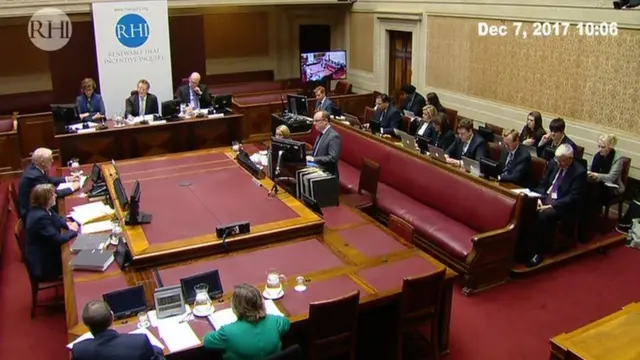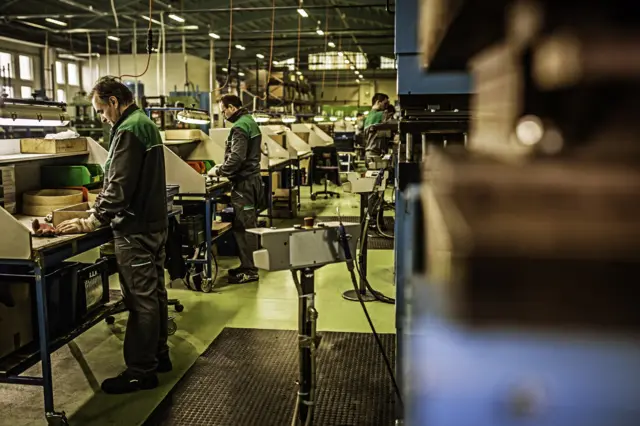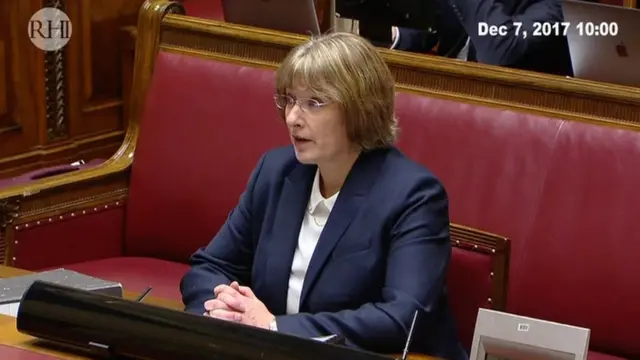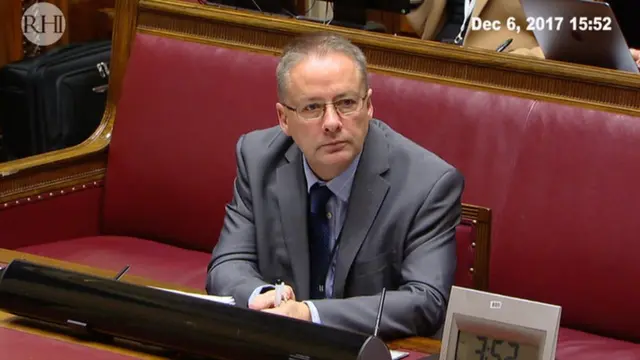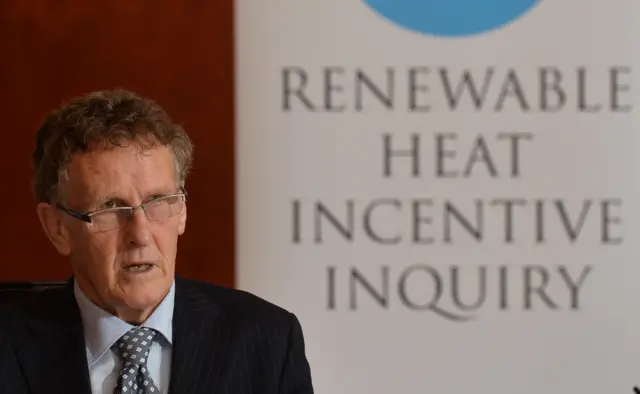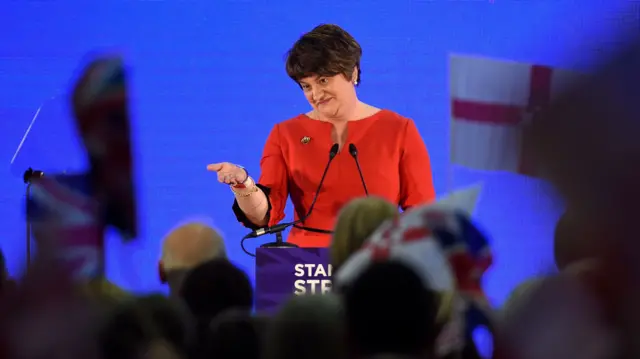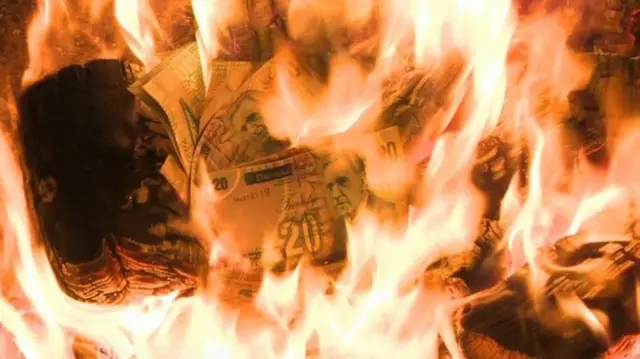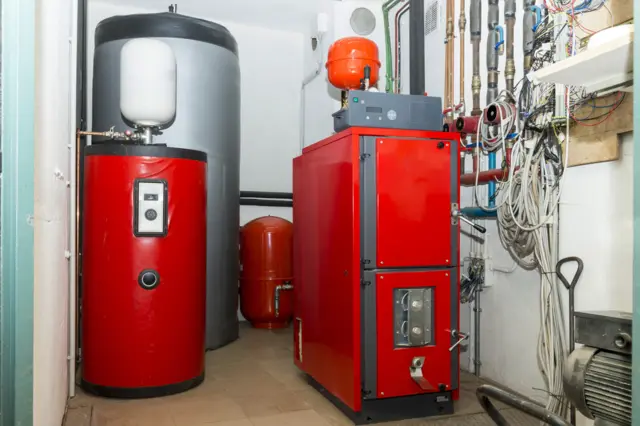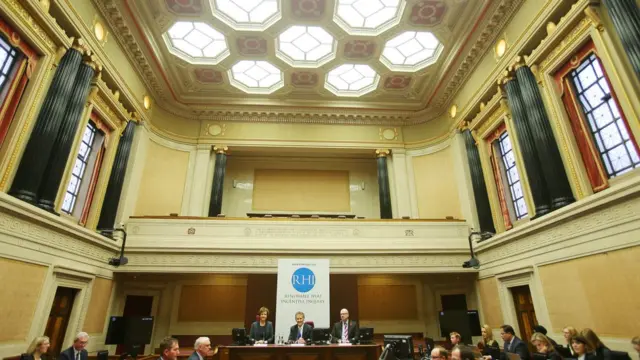'Extra staff resources were only part-time'published at 11:09 GMT 7 December 2017
A number of witnesses have told the inquiry that the DETI team dealing with renewable heat was under-resourced - there was simply not enough staff.
This was particularly clear on Tuesday, when we heard from civil servant Peter Hutchinson, who did much of the early spade work on the RHI scheme.
Ms Hepper says the staffing was "adequate but not optimum" and that she recognised the problem and acted on it, bringing in "a bespoke principal" to head a separate renewable heat branch.
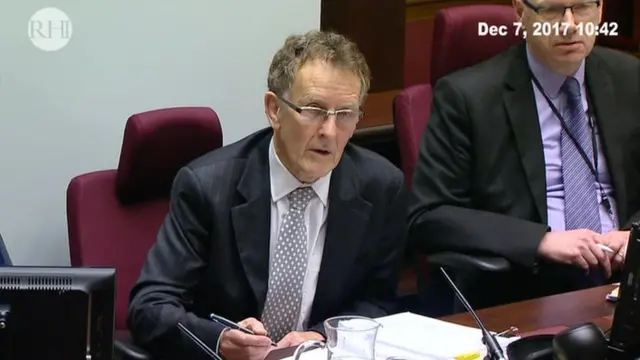 Image source, RHI Inquiry
Image source, RHI InquiryInquiry chair Sir Patrick Coghlin doesn't seem impressed, pointing out that that principal, Joanne McCutcheon, only worked part-time.
"She was the principal in charge and she was part-time, and you were asking for resources and Mr Hutchinson was doing most of the work?" he says.
"He was doing a lot of the work," Ms Hepper replies.

